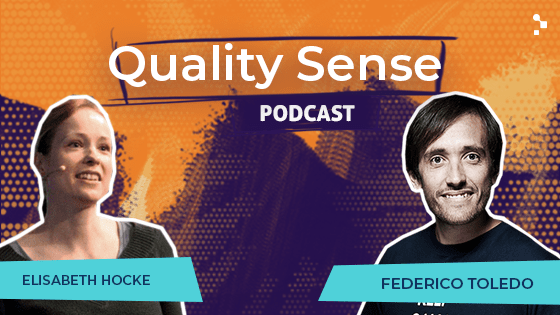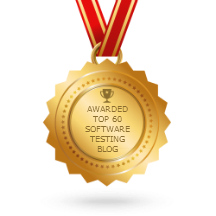The clock is ticking and nothing can stop it. No matter what, the body and mind need a good rest every day. And there is only one formula for it: sleep well. How does sleep affect our daily work in a globalized era? Learn the best tips to sleep well, with an exclusive interview with the neurologist specializing in sleep Sofía Luján.
By Natalie Rodgers
“Sleeping is no small art: it requires being awake all day long,” said the German philosopher Friedrich Nietzsche in his book “Thus Spake Zarathustra” more than a century ago.
Sleeping well is a vital need of the body, and it directly affects people’s overall health: the functioning of the immune system, mental, neurological, and cardiovascular health, and more. But also on people’s economy, through its effects on work performance.
Work on-site and fixed hours, remote and flexible, hybrid, or with varied schedules. The globalized era has greatly expanded the ways of working, and this has been strongly accentuated by the pandemic. 9 a.m., 2 p.m., 8 p.m., or 2 a.m… Countless people today live always On, always connected.
In this context, the U.S. phenomenon known as “The Great Resignation” is expanding more and more in the world, in the search to take care of physical and mental health. With this, another phenomenon that had already existed for some time took on a name of its own: Quiet Quitting.
This expression refers to the practice of people who fulfill the tasks assigned to them in their jobs, but whose commitment is in general limited to what is only necessary. It can lead to different forms of behavior and can also have different causes, but the truth is that the lack of motivation or the perception of care felt by those who work in different companies are some of the strongest causes.
At Abstracta, we are fully convinced that a humanistic culture, in which the integral care of people with a holistic perspective is ensured, is key to building long-term relationships.
On this path, the promotion of healthy sleep habits is crucial because this can help improve the quality of life of those who make up the companies and also their performance at work. In pursuit of their own development and well-being, and also that of the projects in which they are involved.
How does poor sleep affect work performance?
“Insufficient or poor quality sleep results in excessive daytime sleepiness compromised attention or memory. In addition, mood alteration, irritability, and increased possibility of accidents,” expressed to Abstracta the Sofía Luján, sleep neurologist.
“Sleep is of enormous importance to organizations because of its relationship with performance, safety, health, and employee attitudes. Moreover, sleep is a malleable behavior that can be improved through individual and organizational changes,” states a study published in Research Gate, which calculated meta-analytic correlations of sleep quality and quantity from 152 primary studies of worker sleep in different organizations.
“There is a bidirectional relationship between sleep and work. When sleep is affected, negative results are observed in relation to work tasks and a series of factors related to health, attitude, and mood,” explained the expert
Even so, it is not always easy to maintain the sleep habits indicated by health professionals. We live in a globalized and completely interconnected era, in which nuanced views are fundamental.
It is essential to establish healthy limits, but it is not all or nothing. If one day we don’t manage to stick to our habits, that doesn’t mean we break them. And sometimes it may also be necessary to adapt the recommendations to our real life. We talked about all this with the neurologist and sleep specialist Sofía Lujan in an exclusive interview.
Sofía Luján (@dralujan on Instagram), a physician at FLENI’s sleep laboratory, with a degree in sleep medicine from the “Universidad Austral” and a fellowship in sleep medicine at the “Hospital Italiano.”
– What tips can we follow to achieve good sleep?
There are many I share here some very important ones:
✔️Maintain regular schedules for sleeping and waking up, both on weekdays and non-working days.
✔️Maintain adequate environmental conditions in the room for sleeping: darkness, noise insulation, and temperature 18-23°.
✔️Regular physical exercise, ideally in the morning and outdoors.
✔️Light dinner and at least 2 hours apart from bedtime.
✔️Avoid smoking and alcohol consumption, especially in the last hours before bedtime.
✔️Avoid consumption of stimulant substances such as coffee, tea, cola, and energy drinks during the last hours before bedtime.
✔️Gradually decrease ambient light and the use of light-emitting devices such as cell phones, tablets, computers, and television. Avoid them the hour before getting ready for sleep.
✔️Perform a relaxing routine the last hour before bedtime: music, breathing, mindfulness and/or white noise.
✔️Do not self-medicate.
✔️Use the bed only for sleeping: wait for sleep outside the bed and during awakenings, if prolonged, get out of bed.
– What according to science is the best time to sleep and how many hours are recommended?
The recommended hours vary according to the age of the individual: in an adult, they are between 7 and 9 hours. The sleep schedule is closely related to the socio-cultural conditions of each country. Scientific recommendations have to do with regularity, nocturnality (due to the effect of the light/dark rhythm), and periodicity, meaning every day, at night, and at regular hours.
There are some studies that evaluated bedtime in some populations, but there are no conclusions that can be extrapolated. In addition, the chronotype of each individual must be taken into account: the natural predisposition of each person to experience energy peaks or moments of rest depending on the time of day, which is different in each person and is related to the synthesis of melatonin (“sleep” hormone) and the daily variation of body temperature.
– We live in a globalized era, in which more and more people from different parts of the world work in very distant geographical spaces and with different schedules. It is not always possible to comply with the ideal tips for getting a good night’s sleep. How can the tips you gave us be adapted to these cases?
The International Classification of Sleep Disorders describes a chapter on “circadian rhythm disorders” in which “shift work disorder” is described. It can be night shift work or rotating shifts, generating consequences in the sleep and wakefulness of individuals.
In these cases, the ideal is to consult a physician specializing in sleep disorders, who will also decide whether or not to use any medication. But in general lines it is proposed:
✔️Up to 2 hours before finishing work:
– Keep the work environment illuminated (so our brain relates it to “the day”).
– Consume some kind of stimulant in moderation (coffee, mate, tea).
– Eat light meals.
✔️At the time of finishing work:
– Perform fasting.
– Wear sunglasses if it is daytime (so our brain relates this moment with darkness).
– Go straight to sleep (avoid paperwork, social gatherings, sports, and any kind of event).
✔️In your home:
– Darken the environment.
– Avoid cell phones and screens.
At this crossroads of what is ideal for science and what is possible for each person, what are the important points that are important to take care of in order to maintain healthy sleep habits at a general level and in all cases?
Maintain rhythms, regularity and routines, and regular physical exercise. In addition, take care of screen exposure schedules and “activating” situations. It is important to maintain the aforementioned guidelines so that the impact on the overall quality of life is the least possible.
Did you know that Abstracta is in the TOP 10 of “The best places to work for women in Uruguay”? This is a Great Place to Work ranking, and companies such as December Labs, DHL Express (Global), Hilton, and Moove IT are on the same list. Find out more in this article.
We invite you to read more about Abstracta’s culture in our blog.
Follow us on Linkedin & Twitter to be part of our community!
Tags In
Natalie Rodgers, Content Manager at Abstracta
Related Posts
Quality Sense Podcast: Lisi Hocke – Accountability & Conquering Personal Challenges
How to push yourself to achieve big goals, Lisi’s personal growth journey, and more Tune into this episode of Quality Sense where the conversation takes a bit of a turn! Instead of focusing on testing, Federico chats with Elisabeth Hocke aka “Lisi” about how she…
Launching UpCamp, to democratize access to IT jobs
A new spinoff of Abstracta is already running at full speed. UpCamp offers companies a product that seeks to insert inexperienced people into the IT industry through internships with a comprehensive approach to learning processes. UpCamp was born. Yes, we like to say that it…
Search
Contents








